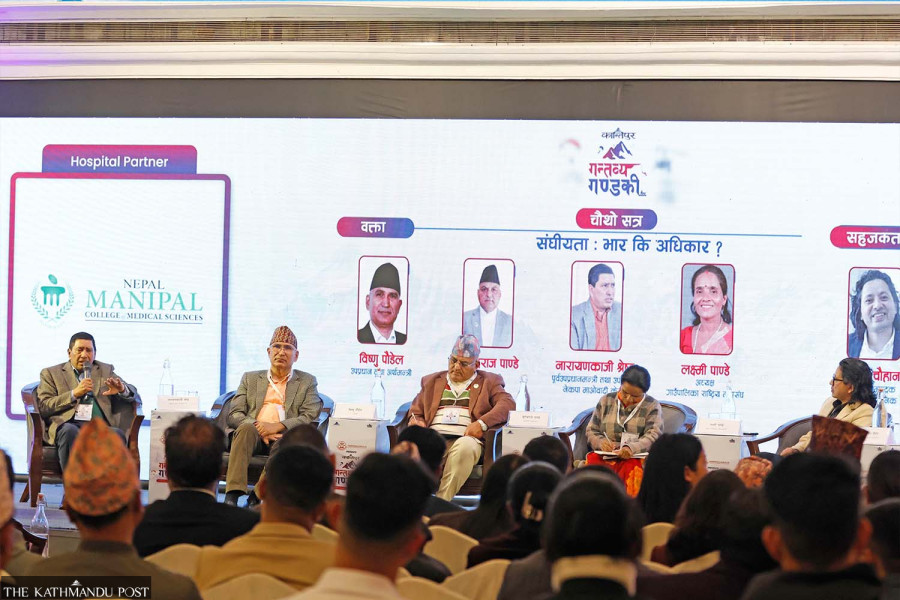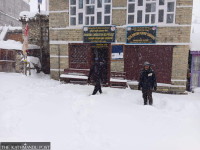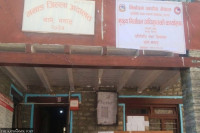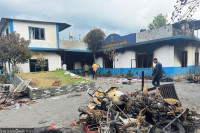Gandaki Province
Leaders, experts and entrepreneurs brainstorm about Gandaki Province’s development potential
The event’s first day featured four sessions covering tourism policies, adventurous destinations, education and health concerns, and the impact of federalism.
Post Report
Ministers from federal and provincial governments, chiefs of local governments, entrepreneurs and experts discussed the challenges and prospects of developments in Gandaki Province at an interaction organised by Kantipur Media Group in Pokhara, Kaski on Wednesday.
Federalism has progressed significantly in Nepal and must now be strengthened rather than questioned, said Deputy Prime Minister and Finance Minister Bishnu Prasad Paudel. Speaking at the final session of the event titled ‘Gantabya Gandaki’, Paudel emphasised federalism as an opportunity, not a burden.
“Federalism is not a liability, it is our responsibility,” Paudel said during the session titled ‘Federalism: Burden or Opportunity?’. “We have achieved significant milestones in its implementation, but much remains to be done to make it fully effective. To accomplish this, we must embrace the tasks ahead with resolve.”
Paudel reiterated that federalism was introduced to distribute powers to sub-national governments and bring governance to the local level, making it indispensable.
Chief Minister of Gandaki Province Surendra Raj Pandey highlighted the challenges of the federal system, likening it to one operating on an outdated infrastructure.
“While the world has advanced to 5G, Nepal’s federalism is still functioning on the 2G stage,” Pandey said. “The system remains skeletal, lacking the limbs and brain required for effective functioning.” He noted that constitutional provisions on exclusive and shared rights require clarity and proper implementation to address inefficiencies.
Pandey urged the three tiers of government to collaborate and avoid conflicts over jurisdiction, warning that such disputes would undermine federalism’s potential.
Former Deputy Prime Minister and CPN (Maoist Centre) leader Narayan Kaji Shrestha underscored the need for police integration to advance federalism. Reflecting on his tenure as home minister, he shared how progress on police integration stalled due to political and procedural hurdles.
“We began the process of police integration, even forming a committee led by an undersecretary to prepare a timeline for the purpose,” Shrestha said. “Unfortunately, the initiative did not progress after my tenure ended.”
Khagaraj Adhikari, former chief minister of Gandaki Province, praised Nepal’s progress in federalism, comparing it with that in other nations.
“South Africa took 30 years to adapt to federalism under Nelson Mandela’s leadership,” Adhikari said. “Nepal, however, has identified its path within just five or six years.”
Laxmi Pandey, chair of the National Federation of Rural Municipalities, urged all three levels of government to adhere to constitutional mandates and work collaboratively.
Highlighting local achievements, Pandey noted that federalism has brought tangible improvements to infrastructure, education, and healthcare at the grassroots level. However, she cautioned against overshadowing these gains with undue criticism.
The discussions concluded with a consensus that federalism is vital to Nepal’s progress. Participants stressed the need for focused efforts to address existing challenges, ensure effective governance, and leverage federalism’s potential for sustainable development.
Speaking at another session titled ‘Education, health, and employment’, participants stressed the importance of long-term planning and investments in critical sectors such as education, health, employment, and tourism to ensure sustainable development and economic growth in Nepal.
Niranjan Shrestha, executive director of Laxmi Group, highlighted the need for immediate action to secure a prosperous future. Shrestha emphasised that fostering startups and creating opportunities for individuals aged 16 and above could pave the way for economic independence and growth.
Ramkali Khadka, executive director of the Women’s Skills Development Organisation in Pokhara, called for government interventions to prevent unskilled women from seeking employment abroad. She proposed allocating budgetary support to create domestic job opportunities.
Khadka also urged the government to provide initial grants or interest-free loans to women entrepreneurs and ensure equal access to subsidies.
The session ‘Adventurous journeys, dream destinations’ featured insights into Nepal’s evolving tourism landscape. Laxmi Gurung, owner of Yak Donald’s in Mustang, explained how improved road infrastructure has diversified tourism in regions like Mustang and Manang.
“Previously limited to trekking, tourism has now expanded to include road trips, cycling, and other activities, bringing in more visitors,” she said. Gurung noted that tourism services in the region are provided equitably to both domestic and international travellers.
Tourism entrepreneur Pratik Raj Pahari argued that narratives about safety, cultural richness, and unique experiences could attract a wider range of visitors.
“Nepal is a safe destination for women and independent travellers,” he said. “We must highlight these stories to draw more tourists.”
Speaking at the first session, ‘Politics and tourism policies’, Gandaki Province’s Minister for Economic Affairs Takraj Gurung said that agro-tourism is the province’s top priority.
The minister said the provincial government is linking agricultural aspects with tourism and promoting cultural and trade fairs to commercialise local ethnic groups and their art and culture.
“We are currently developing a tourism policy highlighting nature, adventure, agriculture, culture, history, heritage, and religion,” Gurung said.
Meanwhile, Pokhara Mayor Dhanraj Acharya announced plans to declare 2025 as ‘Pokhara Visit Year’ to boost tourist arrivals and create a destination that attracts returning visitors.

The mayor stressed that tourism is central to Pokhara’s identity and that the city’s infrastructure is being improved with projects worth Rs7.5 billion.
“All our initiatives are aimed at enhancing tourism,” Acharya said.
Deepak Raj Joshi, the chief executive officer of Nepal Tourism Board, emphasised the need to bring the benefits of tourism to every home and village in the country.
Referring to a 2018 survey conducted by the Board, Joshi said that approximately 1.3 million Indian tourists travel to Nepal via road networks, with many destinations available for them within the country.
However, Laxman Subedi, chairman of the Hotel Association in Pokhara, raised concerns about the accuracy of tourism data.
He said that the Nepal Tourism Board had inflated tourist arrival figures by including non-residential Nepalis visiting for family gatherings rather than counting actual tourists contributing to the hospitality and trekking sectors.
“These visitors do not contribute to the hotel, restaurant, or trekking sectors,” he said. “They come to meet their families and return, but we count them as tourists.”
Lucky Chhetri, the founder of Three Sisters Adventure Trekking, highlighted the potential of women in the adventure tourism sector. She stated that many women could significantly contribute if given the opportunity.
“Tourism is the key to development, everyone knows this,” she said. “But why are we being so stingy in developing and expanding this sector? It remains unclear.”
In his welcome remarks, Kailash Sirohiya, chairman of Kantipur Media Group, highlighted Gandaki Province’s immense tourism potential, emphasising that it remains largely untapped.
“Gandaki is not only a tourist hub but also an industrial city in terms of production,” he said. “While Pokhara has taken the lead in education and health, districts like Manang and Mustang remain geographically remote and lack adequate infrastructure. Agricultural products such as apples, which have immense potential in the Himalayan region, have yet to receive sufficient support and market access. Institutionalising public-private partnerships and aligning government plans with private sector initiatives are crucial for building a self-reliant economy through tourism, entrepreneurship, and agriculture.”
Sirohiya added, “There is still much to be done to fully harness Gandaki’s potential in tourism, agriculture, education, health, entrepreneurship, and infrastructure. Kantipur Media Group has brought ‘Destination Gandaki’ here to serve as a common platform to explore and utilise its full potential, focusing on policy formulation and implementation, infrastructure development, tourism promotion, and advancing investment and employment opportunities while addressing your key issues.”
The event featured four sessions covering tourism policies, adventurous destinations, education and health concerns, and the impact of federalism.




 13.12°C Kathmandu
13.12°C Kathmandu










